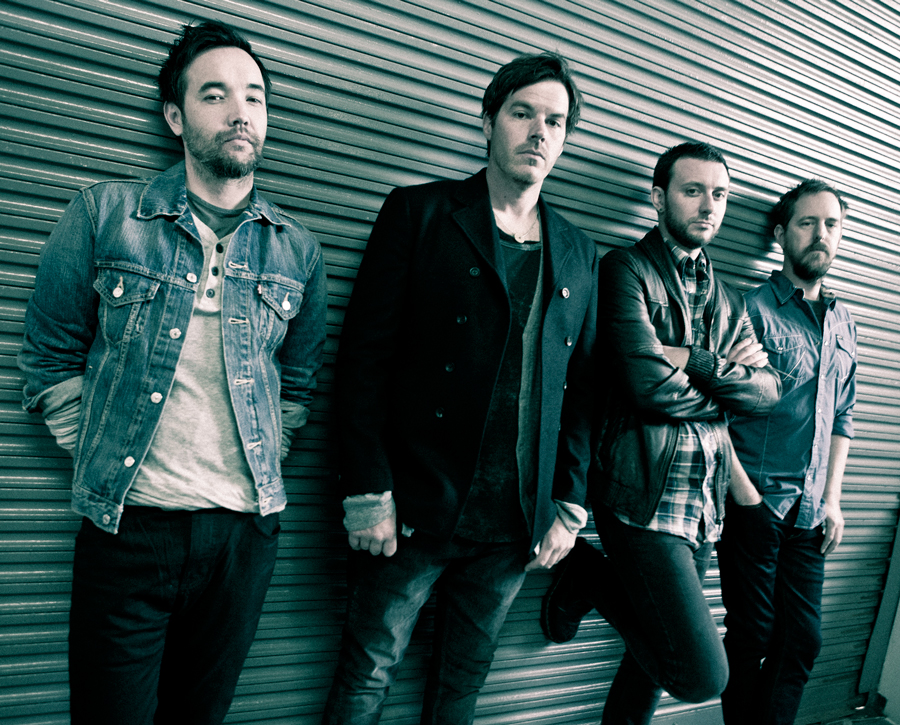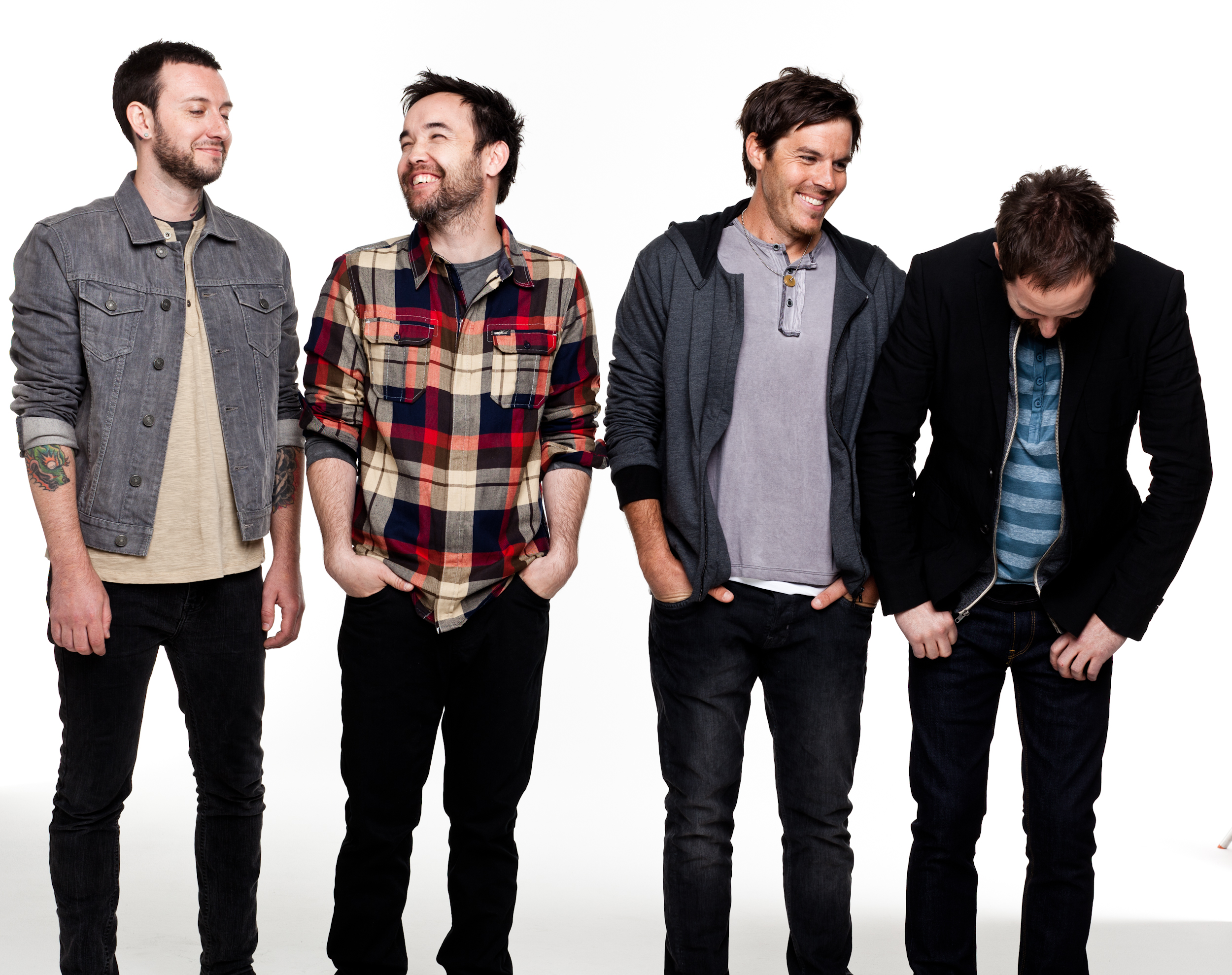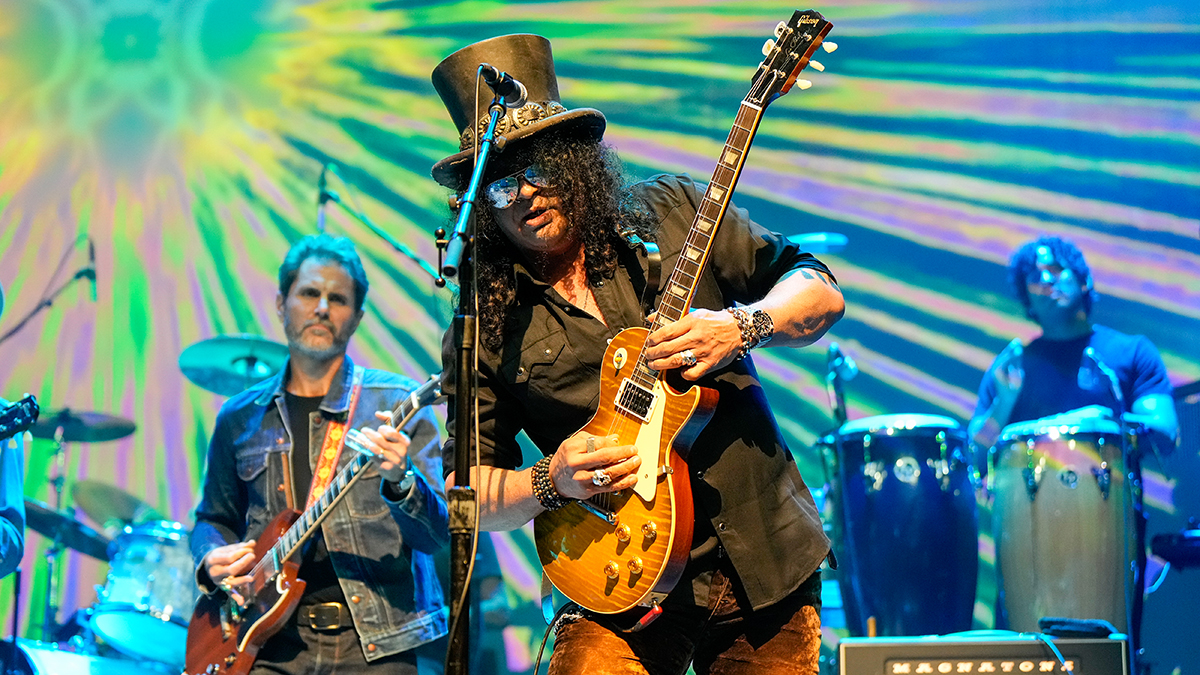Interview: Dan Estrin of Hoobastank Talks Songwriting and New Album, 'Fight or Flight'

In 1994, vocalist Doug Robb and guitarist Dan Estrin founded Hoobastank. When the band signed their first record contract, success came quickly and at full speed — platinum albums, chart-topping singles, world tours.
Then the industry changed, and Hoobastank — Robb, Estrin, bassist Jesse Charland and drummer Chris Hesse — had to change with it. After a decade on Island Records, the band is with Open E Entertainment, for whom they have just released a new album, the appropriately titled Fight or Flight.
While marketing and promoting an album are no longer record label givens, and instead lie in the hands of artists utilizing social media, for Hoobastank, creating great music remains the same. It’s about four men working tirelessly and diligently to craft melodies and lyrics that connect with a loyal audience. Dan Estrin explains.
GUITAR WORLD: You started the band with Doug almost 20 years ago. Over that period of time, how has the partnership evolved? How have his growth and maturity as a singer, songwriter and performer changed and developed your songwriting and guitar playing?
I really don’t know. I almost feel like that’s a question for a fan who has been watching the band. Doug and I don’t always see eye to eye. We’re as close as friends can be. We’ve known each other forever, we live near each other and we talk all the time. I’m a visual dude. I like watching videos and documentaries on bands, and I grew that way. I try things I’ve seen, whether it’s a Beatles documentary, Dylan, The Song Remains the Same, or as a guitar player, It Might Get Loud. Stuff like that inspires me. A lot of times Doug will write something that touches and is inspiring to me, and once the music is written we will send it back and forth to each other and tweak it as a band.
He works around your musical ideas. Do you think vocally and lyrically when you write? Are there parameters you have to work within or is it uncharted territory?
I give him everything and he’s either inspired to write over it or he’s not. For every 10 songs I give him, two might turn into a Hoobastank song.
All the latest guitar news, interviews, lessons, reviews, deals and more, direct to your inbox!
I’ve had him walk in my room sometimes and I go, “Sit down, listen to this.” I see the smirk on his face and I go, “What?” He says, “Nothing. I’m just trying to figure out what I would do over this.” I know in his head he’s going, What the fuck is this? But I don’t care. I give him everything and you never know what can happen with that. I will also preface it all with him by saying, “I was inspired by this, or by this groove, and just because it sounds like this musically doesn’t mean you have to sing your vocals over it like that. Be you and do what you do over this.” There’s times when he shakes his head and others when he goes, “Yeah.” Same with me. He sings over my music, and if I’m not feeling it, we’ll try something else.
On Fight or Flight we have a song called “1000 Words.” I wrote the music to it probably five years ago, gave it to Doug, and in my e-mail I said, “Write three different melodies over this.” He did. He had these ideas and the song sat there. He sang over it, made up the words as he went along, and the demo sat there.
One day, Jesse and Chris were in my car and I put in a CD with a bunch of ideas. They heard it and they liked it. They kind of lit the fire to revisit that song. Sometimes you need other people to inspire you to finish it. So basically, Doug might not have totally felt or seen where I was going, the big picture, and it took the other guys to say, “This is really cool. Let’s work on it.” And vice versa. We’re all in our boxes and our comfort zones and it’s nice to get out of them once in a while.
When he sends something back, does the entire direction of the song ever change?
No, it’s not a different direction. Sometimes I might send him a song that sounds too poppy, or maybe it sounds like there are no guitars in it. I don’t always write on guitar. I write on piano, which I suck at, but I can put it together nicely, or I write on drums or on bass. I think the main thing is just because the song can be put in the category of a ballad doesn’t mean you have to sing it that way all the time or write a love song. He knows that. It’s just sometimes that might be his first place to go.
You have to get outside your comfort zone. I might have to play something and reference it and say, “Do you see how the vocals are like this and the music is like this?” Or Jesse will say to me “Check out the guitars on this song. It’s not power chords. It’s different.” He never sends something back that’s completely different. I kind of know what to expect sometimes and I think he does from me as well. But there’s also those amazing times where you hear something back and say, “That is really badass and I really get what he’s saying.”
Do you prefer writing on piano to writing on guitar?
I still write on guitar. I have a ton of ideas on guitar, but if somebody said to me, “It’s like a marriage and you can only be with one partner for the rest of your life,” if I could only play the guitar, I’d be bummed. The fact that I can sleep with other instruments is great! I’m inspired by that. On piano, my hands go on different notes and in different positions than on the guitar, and what I’ll do is, with my right hand on piano I play chords or a riff and with my left I have the bass notes going.
I record something that I like, an idea that I like, I try to find those notes on my guitar at a higher register and it becomes my guitar part. Then the bass will take over the bass. Or we keep the piano and come up with a completely different guitar part over it. Not a wall of guitars; it’s more of a texture.
When I’m driving, I play air drums. I’m always tapping along. I’m inspired by a drum hook, and I think about us playing in front of people once the record comes out, the song starts with just the drums, and the fans start cheering because they know it. I’ll record a drum part and then a bass line or guitar part or piano line over it. It’s like Legos. You build from there and it starts to grow.
Read more of Dan Estrin’s interview here.
— Alison Richter
Alison Richter interviews artists, producers, engineers and other music industry professionals for print and online publications. Read more of her interviews right here.



Alison Richter is a seasoned journalist who interviews musicians, producers, engineers, and other industry professionals, and covers mental health issues for GuitarWorld.com. Writing credits include a wide range of publications, including GuitarWorld.com, MusicRadar.com, Bass Player, TNAG Connoisseur, Reverb, Music Industry News, Acoustic, Drummer, Guitar.com, Gearphoria, She Shreds, Guitar Girl, and Collectible Guitar.
